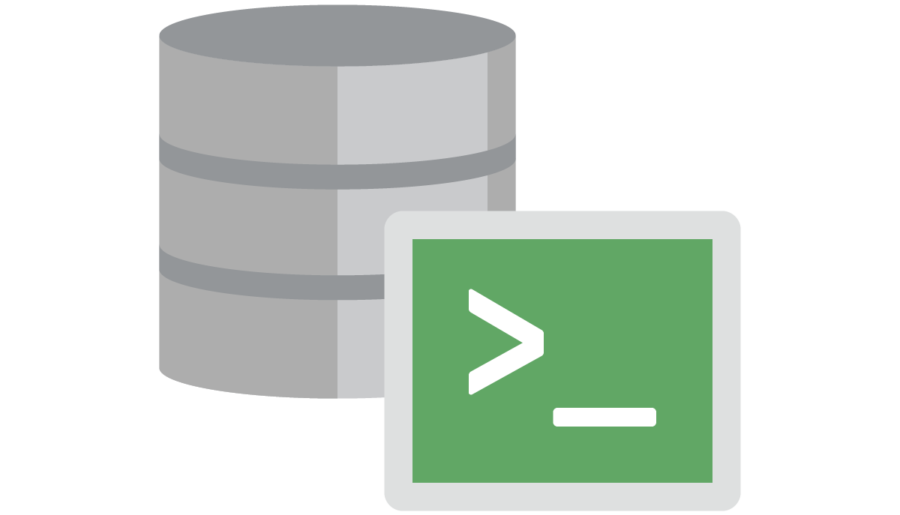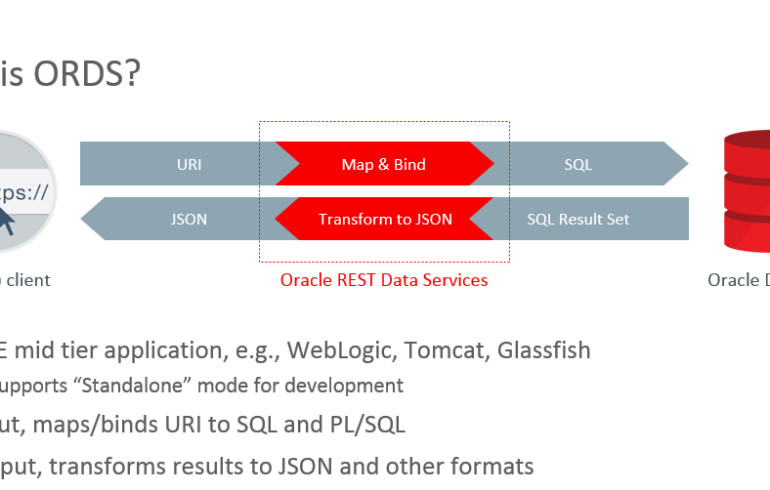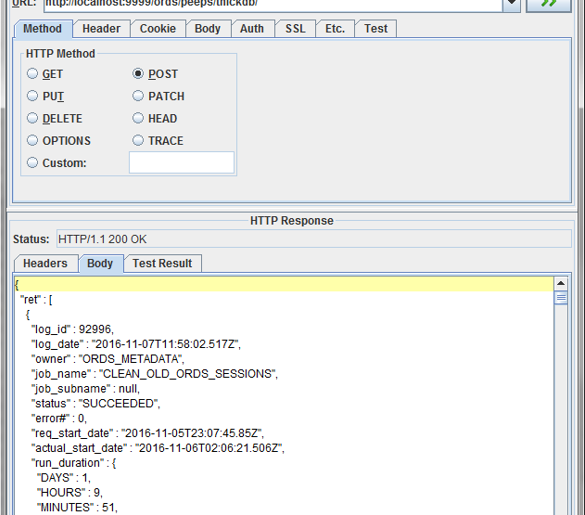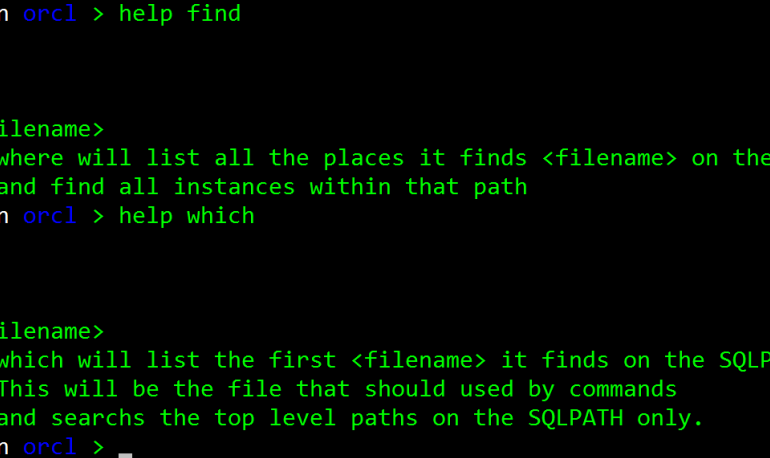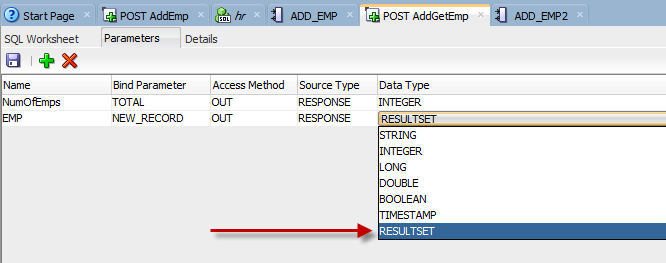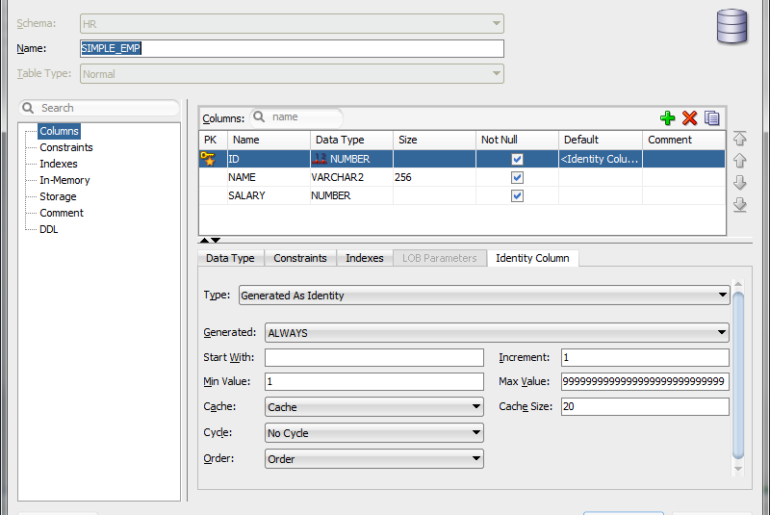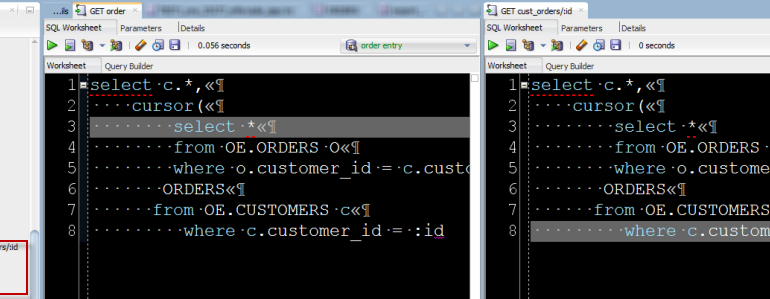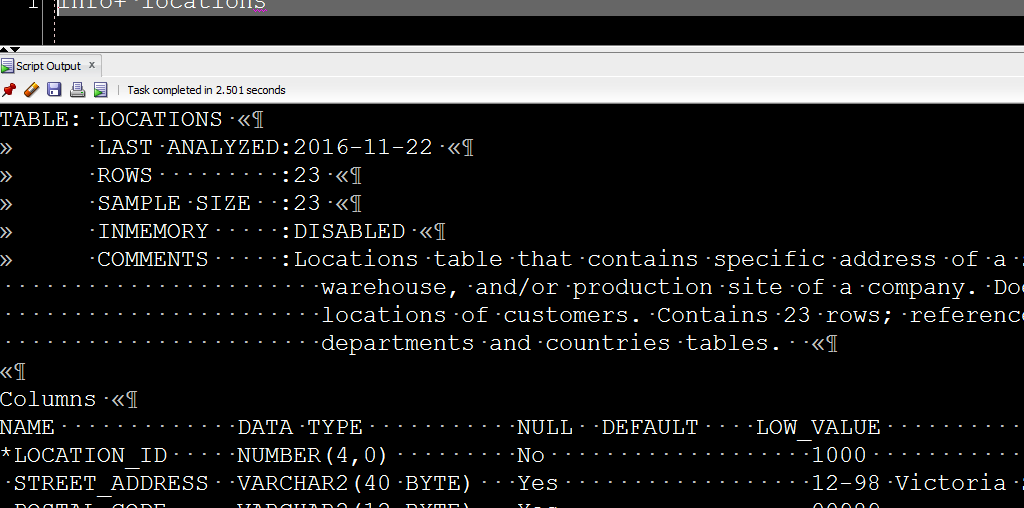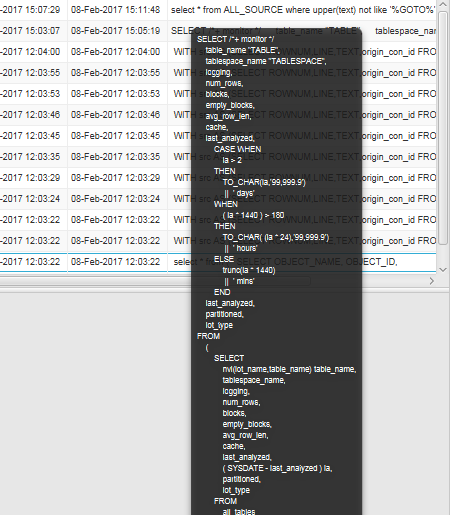Can you? YES. Absolutely, even. Go from your app to your Oracle Database resources via REST (GET|POST|PUT|DELETE), and your responses come back via JSON. No APEX required. And even better, you can have ORDS up and running in less than 5 minutes. Ok, but what about ORDS & APEX? If you want to provide a RESTful API for your Oracle Database, then ORDS is for you. But, when I do talks on ORDS, I ask…
In the current issue of Oracle Magazine, you can read all about how to get started with the Auto REST feature of Oracle REST Data Services…or in other words, how to automatically make Tables and Views available via REST APIs. A table or view is very easy to consider as a resource in the REST model. What ORDS does is allows you to interact with them via GET, PUT, POST, and DELETE – without writing…
One of the major new features in Oracle Database 12c Release 2 is Analytic Views. An analytic view is a type of view that can be used to easily extend the content of a star schema with aggregated data, measure calculations and descriptive metadata, and to simplify the SQL needed to access data. Analytic views layer a hierarchical/dimensional model over data. Analytic views are defined over the dimension tables and fact table of a star…
You have a new version of SQLcl to download this morning. Lots and lots of bug fixes – again, thanks everyone in the community for providing feedback so we can make continuous improvements. A few things of note: Two New Commands They do pretty much what you’d expect. You’ll also notice something new on startup/connects if you’re using a ‘local’ LOGIN.SQL What’s a ‘local’ LOGIN.SQL? It’s a LOGIN.SQL file that we find in your current…
Update: This post was refreshed on October 14, 2021. I have a very simple, and not very elegant stored procedure. 18155176016866638d9e08b_000007 Sidebar: Like, I’m not a professional developer. The WHEN OTHERS THEN bit…that’s BAD CODE, don’t do that. You should do something, more like THIS. This stored procedure takes in a name and salary. It inserts a record to my table, and returns the new employee’s ID and the new total number of employees in…
PL/Scope is one of my favorite features. It answers SO many questions. Where am I declaring this, where am I calling that, when am I referencing something? And, I can get this information automatically, without hitting the big, fat SOURCE data dictionary views. I’ve talked about this previously… …BUT, PL/SCope didn’t help me with tracking the SQL I used in my PL/SQL. That is, it didn’t until 12cR2. Starting with Oracle Database 12c Release 2…
I have a RESTful Service that accepts a bind value to a query that ORDS will run for me. How do I pass that bind to ORDS? You can do it explicitly be defining it as part of the URI. Or, you can use the classic web ?var=value to pass it. ORDS supports both 🙂 The only difference is the URI itself. Easy, just include it on the call. So, which one to use? I…
Want to export a ton of tables, but only get SOME of the records? Want to apply a GLOBAL filter across the tables to only get the records you want? Tools > Database Export. I’m going to export data, NOT DDL. I’m going to write it to a single JSON file. I’m going to grab data from a couple of tables. I ONLY want records from those tables where the CUSTOMER ID is in a…
People seemed to like the Instance Viewer we built for version 4.1. So we wanted to use similar technology (Java FX) to build a new interface for the Oracle Database Tuning Pack’s Real Time SQL Monitor. So we did. If you don’t have EM Express or Enterprise Manager available or handy, you can get the report in all it’s live, refreshing glory, in SQL Developer’s DBA Panel. It’s also on the Tools menu. A Quick…
Reviewing my timeline, I came across this gem from Franc. I hate seeing SQL with keywords in uppercase and identifiers in lowercase. identifiers are case sensitive. Not keywords.— Franck Pachot (@FranckPachot) February 7, 2017 Franck isn’t alone – a lot of people hate it when their code doesn’t look the way they want it to. Many folks know about our formatter, and how to use it to get their IDENTIFIERS UPPER-CASED. But did you know…




